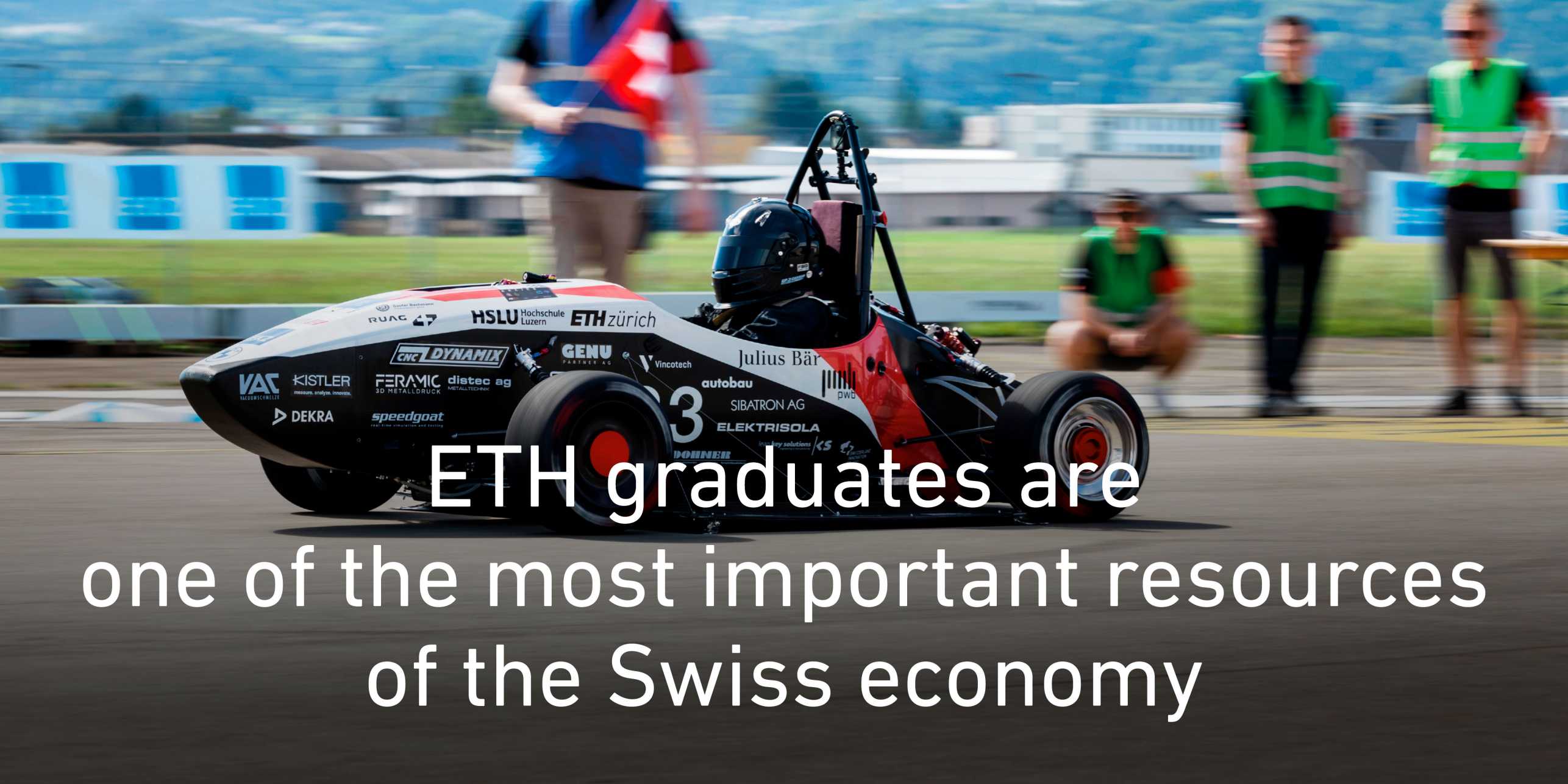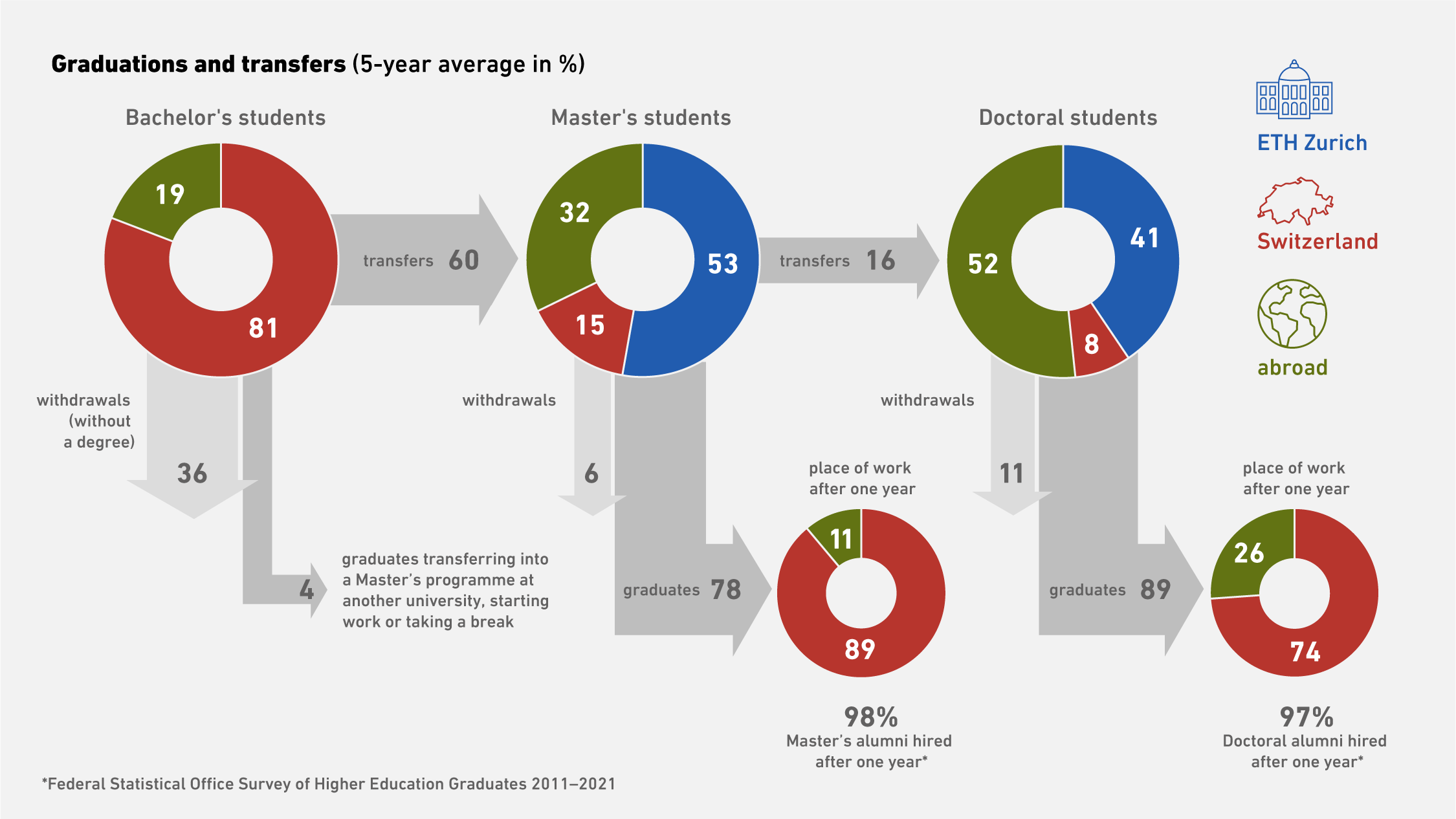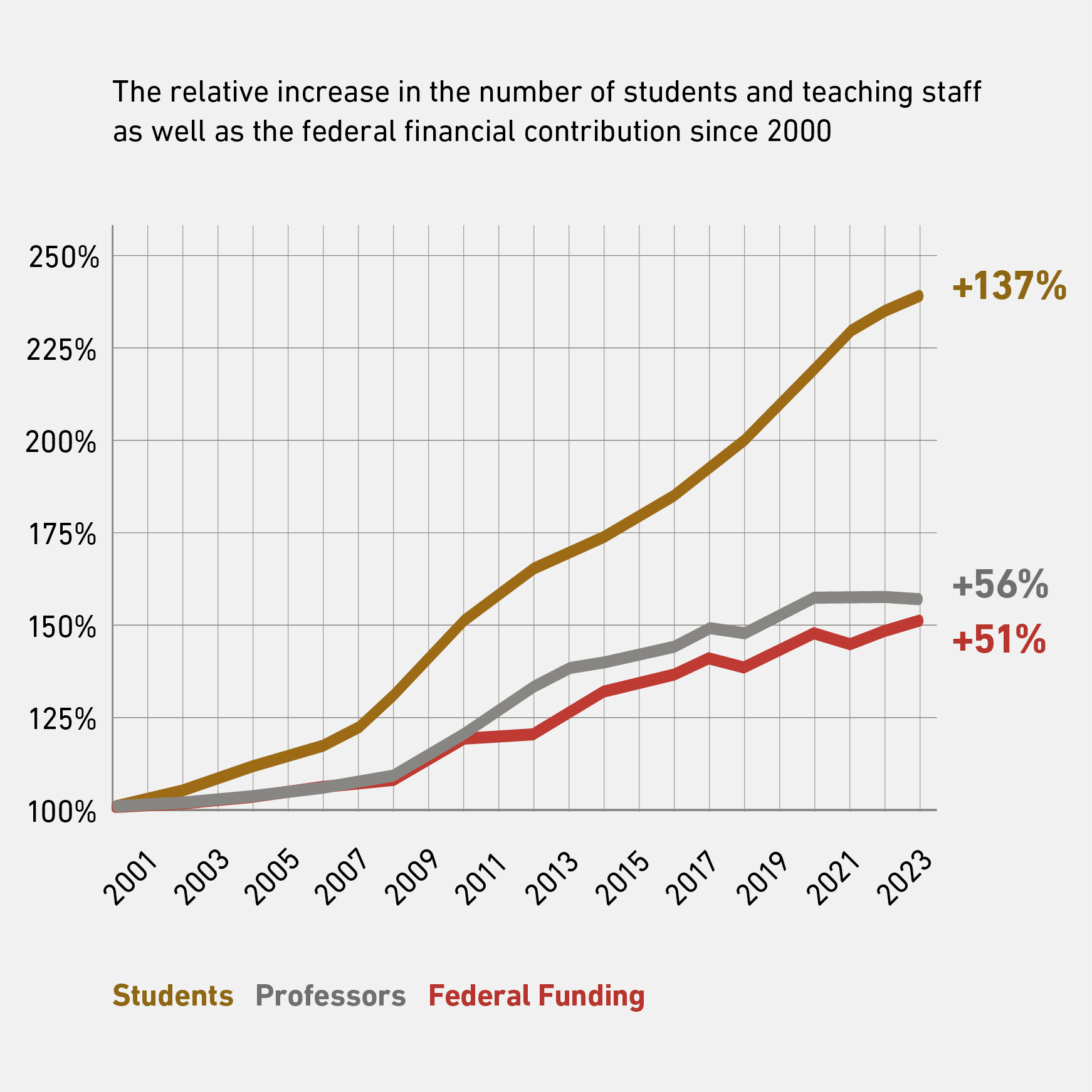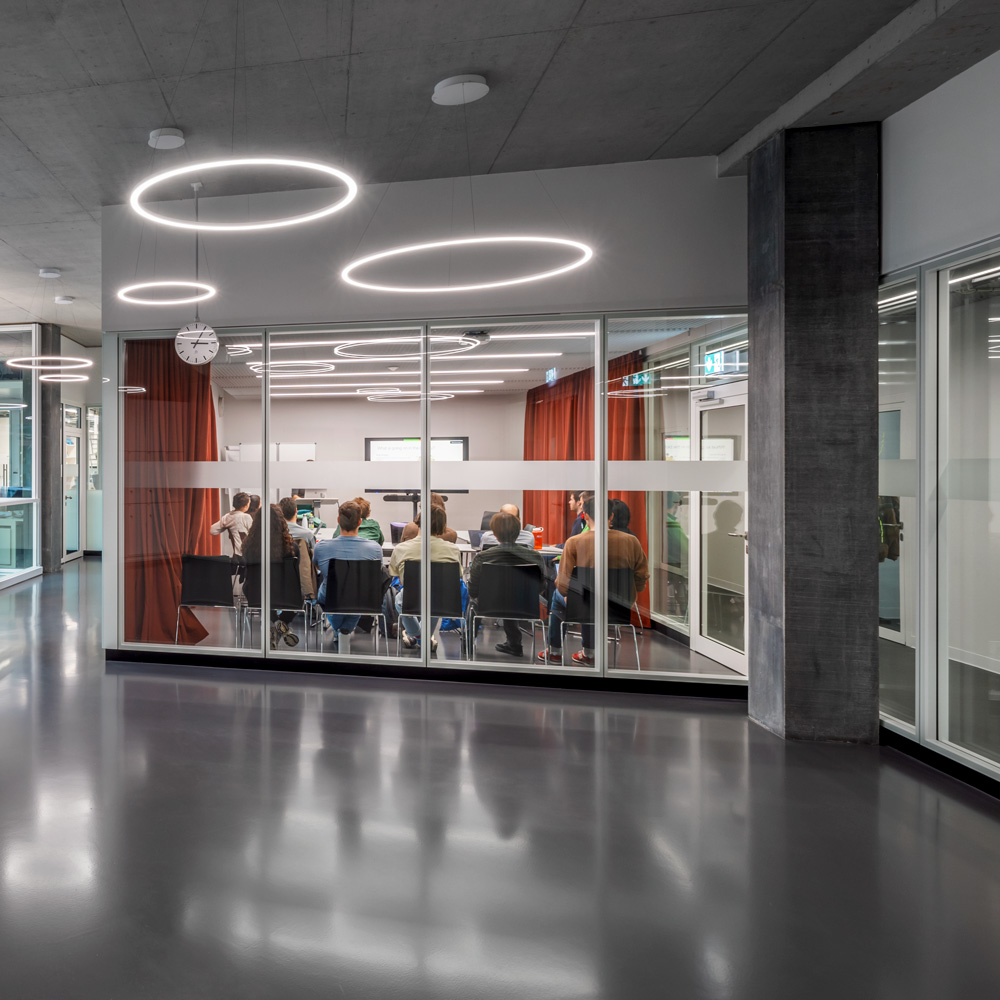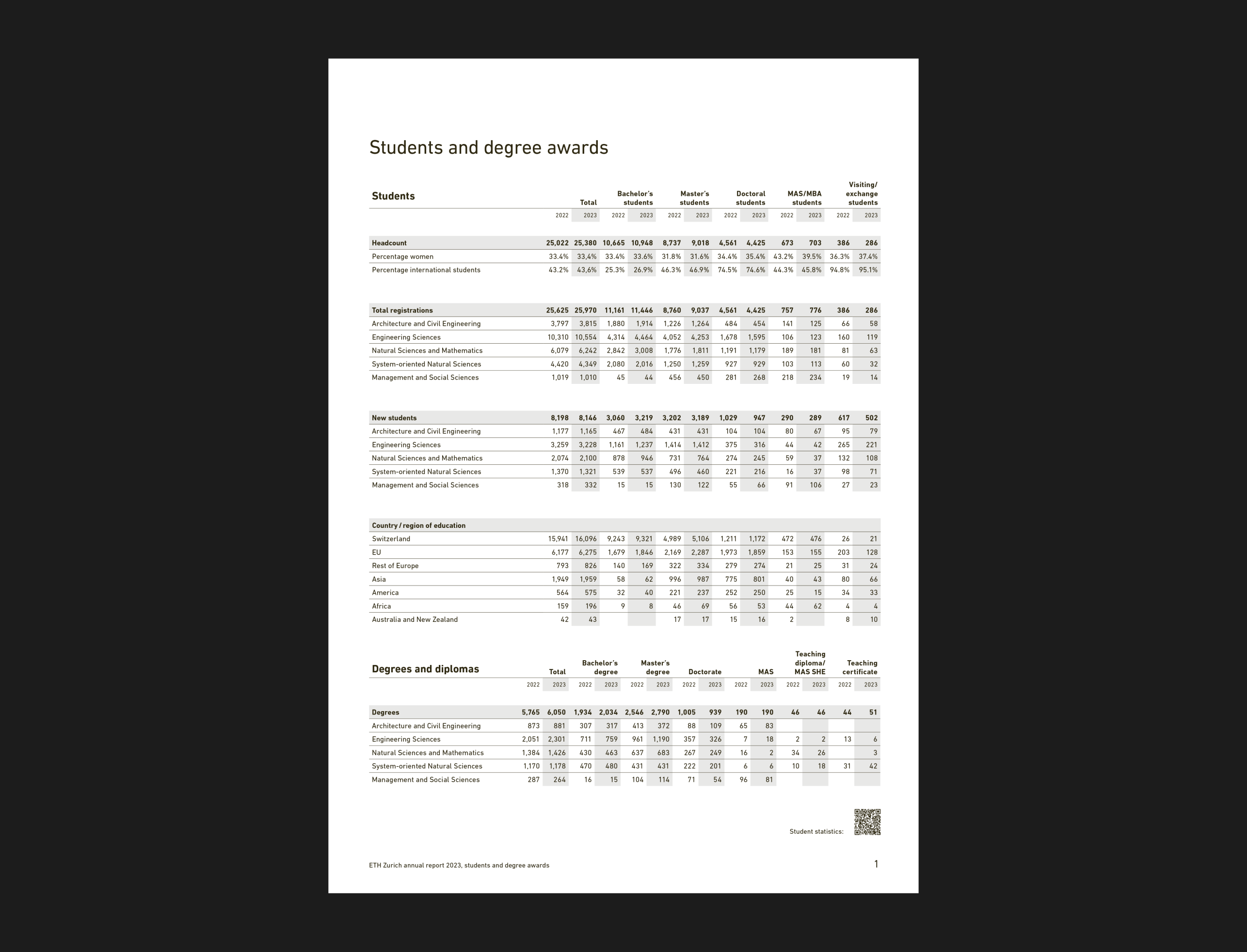Teaching
Graduates for Switzerland as a knowledge nation
Alongside research, education is the key to Switzerland’s prosperity. With around 4,000 Master’s and doctoral students graduating each year, ETH Zurich makes a significant contribution to combating the skills shortage in Switzerland – particularly in the STEM fields and human medicine. ETH Zurich’s excellent reputation attracts the best talents internationally. More than two thirds of foreign graduates remain in Switzerland to start their careers. The university’s research-oriented, classroom-based degree programme conveys fundamental and subject-specific knowledge at the highest level. It features independent learning, the development of individual strengths and a flexible study structure. The result is creative thinkers who responsibly help shape the future and solve problems in a complex world. The quality of teaching is constantly improved through modern technologies and scientific findings.
Growing student numbers present a challenge
Student numbers at ETH Zurich have been growing for years – and significantly faster than funding. A deterioration in the faculty-to-student ratio could jeopardise connections with the world’s best universities in the medium term. ETH is looking for solutions to manage growth while maintaining the quality of its teaching.
New admissions strategy
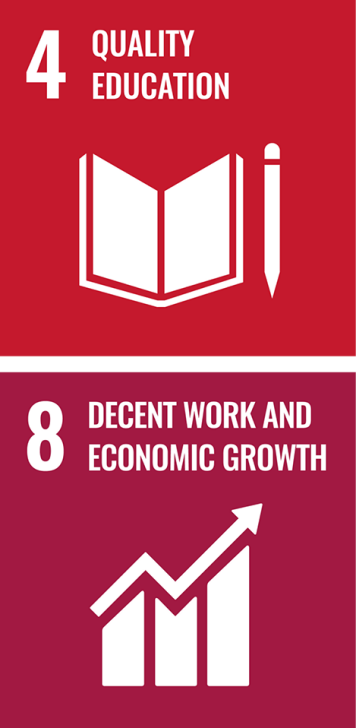
A taskforce set up by Rector Günther Dissertori is examining how ETH can manage the growth in student numbers without compromising the quality of its teaching. One of the taskforce’s achievements is the new admissions strategy that has been approved by the Executive Board. “We will not be able to slow down this growth, nor do we want to. We need specialists. Introducing more stringent selection would enable us to reduce the speed of growth,” Dissertori explains.
Project-based teaching delivers top performance
ETH fosters a culture of independent learning that promotes students’ individual strengths and allows for flexible study arrangements. One of the ways in which it achieves this is by adopting project-based learning. Projects are an important vehicle for applying knowledge and gaining a deeper understanding of a subject. While increasing motivation and curiosity, they encourage students to develop interdisciplinary and social skills.
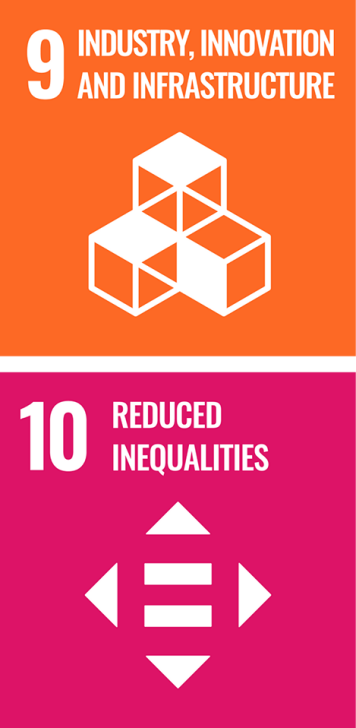
Flurina Rigling won two world titles in paracycling in 2023, but she has only been racing bikes regularly for a few years. Former ETH student Luca Hasler has played a part in Rigling’s success. As part of his Master’s thesis, the mechanical engineering student developed new handlebars customised to the parathlete’s hands. He developed a simple and cost-effective process that enabled him to define, test and optimise the handlebars’ complex surface.
More freedom to develop teaching
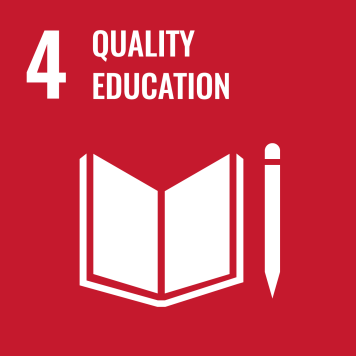
In 2023 Rector Günther Dissertori initiated the PAKETH project to improve the structure of the university’s academic calendar and simplify the examination system, which is too complex and hinders the development of our teaching programme. Furthermore, it means students and doctoral researchers face a heavy workload over almost the entire year. PAKETH ensures closer alignment between exams and term dates, clearly defined breaks between semesters and a week of no classes in the Autumn Semester. The aim is to provide a better link between the teaching and study phases and encourage sustainable learning and life experiences. The overall concept is undergoing a consultation phase in spring 2024, after which the implementation stage will start for all Bachelor’s and Master’s study programmes, based on standardised study regulations.
Expansion of the lifelong learning programme
In addition to educating Bachelor’s, Master’s and doctoral students, ETH Zurich is active in the field of continuing education. By developing new, needs-based models for lifelong learning, the university contributes to the employability of the population and thus to Switzerland’s competitiveness.
CAS programme on sustainability and regeneration

The new “Certificate of Advanced Studies ETH in Regenerative Systems: Sustainability to Regeneration” continuing education programme offered by the Department of Civil, Environmental and Geomatic Engineering builds on the MOOC series “Designing Resilient Regenerative Systems” launched last year to address the complex and unpredictable challenges of today. It introduces tools for dealing with problems and gives practical demonstrations showing how transformations can be achieved through sustainability, leading to regeneration. The CAS is a hybrid offering, being taught online with a ten-day practical component at the MonViso Institute in Italy.
Sustainability
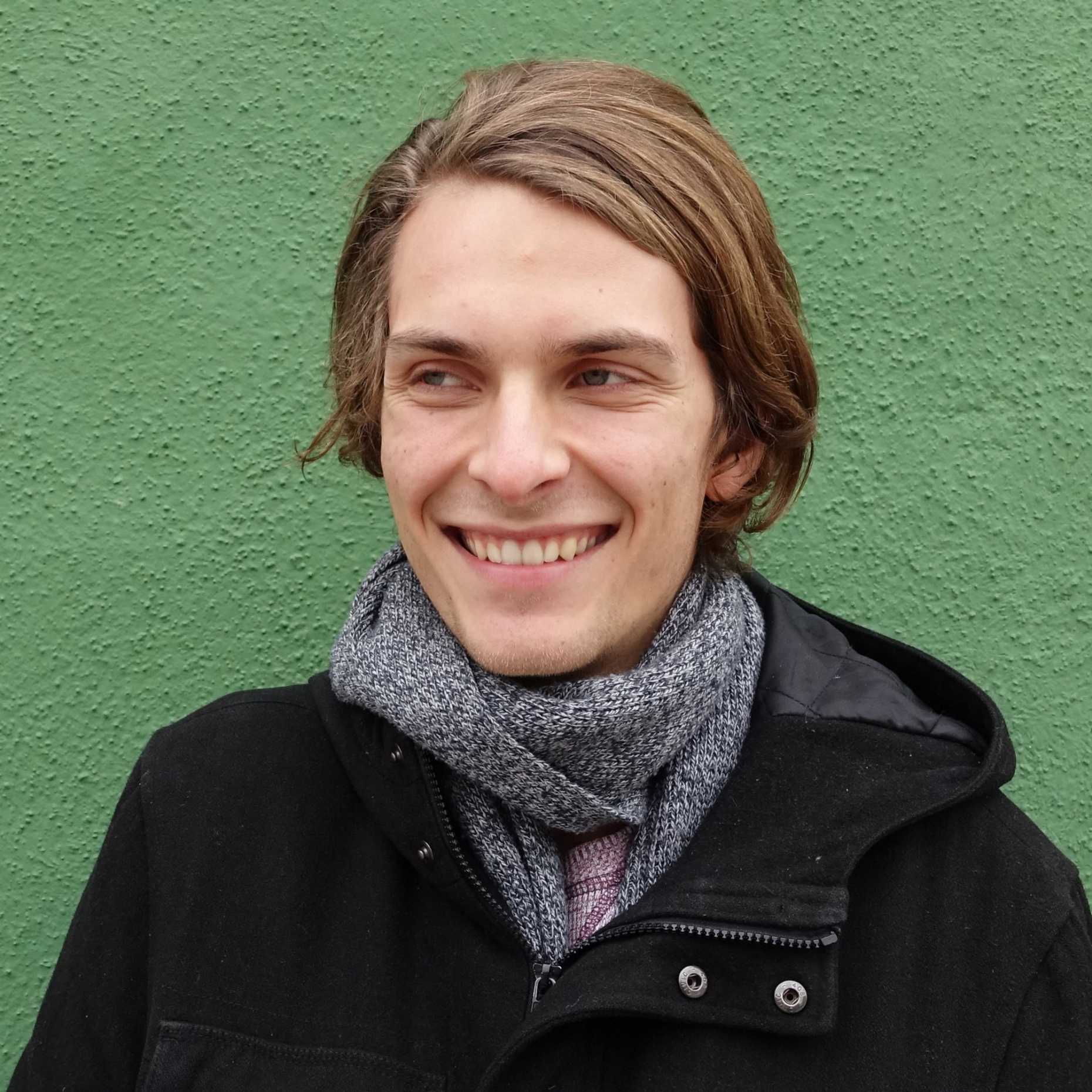
“The generation that will experience and shape the social transition to Net Zero during their professional careers are now studying for their degrees.”Jan Linder, Association of Students at ETH Zurich (VSETH)
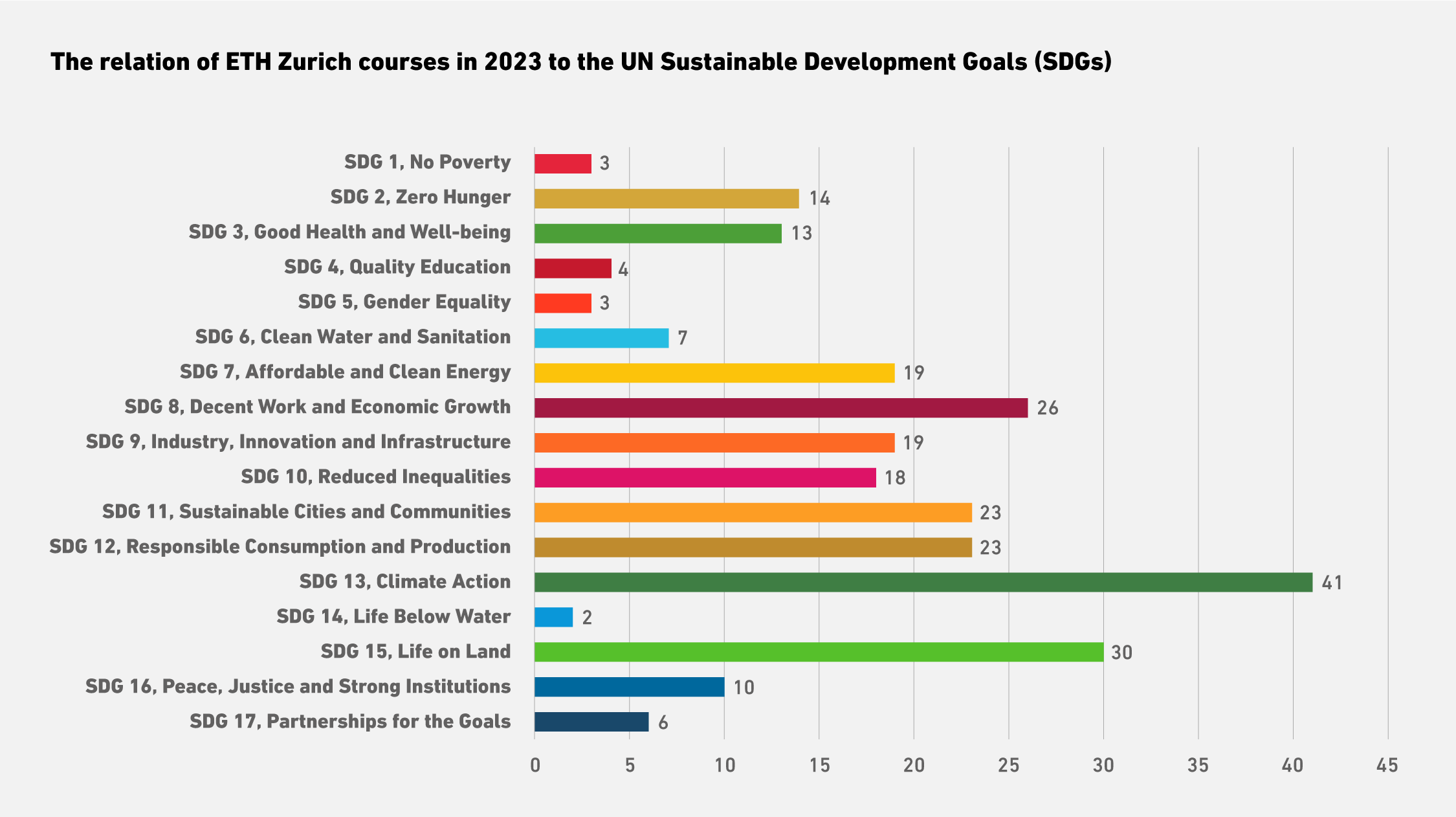
Around 57 percent of ETH graduates report that they never or only rarely come into contact with sustainability issues in their busy everyday student lives. While curriculum reform projects initiate long-term changes, students with an interest in sustainability topics look for extra-curricular opportunities in the short term or make their own arrangements. Examples include the offerings of external page Rootlinks and external page Rethinking Economics Switzerland. The VSETH Student Sustainability Committee presents concrete ideas for more sustainability in teaching with its Vision 2030.

Students and degree awards
ETH had a total of 25,380 students in 2023, of which 33.4% were female and 43.6% were international. In 2023 there were 6,050 graduates. The table below shows the students according to their level of study, area of study and educational origin, as well as the number of graduates according to their level and area of study.
The Annual Report is produced in German and translated into English. Only the German version is binding.
© ETH Zurich, April 2024
